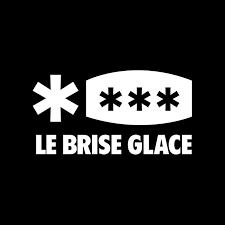Eblis Àlvarez was born in 1977 in Bogota, the capital of Colombia, sitting at an altitude of 2,500 metres. He entered the conservatoir at the age of nine in the classical guitar section. Fast forward 10 years and Àlvarez had become a key figure in Bogota’s underground music scene, driven by his founding of the Meridian Brothers in 1998. At first, Àlvarez recorded all the instruments himself and the cassettes he distributed were very successful. In 2002 he moved to Copenhagen to learn composition at the Royal Danish Academy of Music. For five years he was a composer for a classical ensemble, a singer in Danish in a church, and a pianist for a dance school. Then, he decided to return home.
In 2007 the Meridian Brothers became an official group, formed from amongst university friends: Maria Valencia (clarinet, saxophone, synthesizer), César Quevedo (bass), Alejandro Forero (keyboards), Damien Pense (drums) who would be replaced by Mauricio Ramirez in 2016. Though a quintet when together on stage, it is Àlvarez who writes most of their music and lyrics, as well as playing all the instruments on the recordings he does in his own studio – a studio named after his idol, Isaac Newton.
Eblis Àlvarez describes the group as a ‘playground’ where he can explore different styles of cumbia, salsa, and tropicalism. ‘When I talk about the Meridian Brothers, I would use the word ‘literature.’ There’s kind of a story to tell in each record, in each sound. Each record has a particular way of developing a language of it own. It’s like classical composers who compose for instruments that they don’t really play, or a writer who creates characters in a fictional story. I describe the Meridian Brothers like this, and this is how I decide how to create a song with the Meridian Brothers.’
With their third album, Desesperanza, the Colombian band gained international reknown through UK label Soundway Records. The gigs that followed in Europe and the United States helped the spread of this hypnotic, almost psychotropic music. Each album is an opportunity to develop a concept that changes their style: ¿Dónde estás María? was inspired by the Beatles’ arrangements, with Àlvarez playing cello for the occasion. Los Suicidas is an instrumental work whose compositions are centered around the organ. Paz en la Tierra was a return to traditional cumbia using accordions. Cumbia Signo XXI was inspired by the futuristic cumbia of the 1980s with a funky bass and disco grooves.
Surreal lyrics help to spice things up too. “Los Falsos Reyes Mayos” narrates the adventures of the Three Wise Men who have become, in this iteration at least, a trio of lecherous drunks. “Un Principe Miserable y Malvado” resurrects Gogol by imagining a prince with one fingernail and no nose. “Devocion” is a sort of philosophical allegory where God has somewhat screwed up the creation of the world (‘God gave us a time machine at birth. We lost it and that’s why we have to wait for death with patience and serenity’). Finally, on “La Tristeza”, Àlvarez’s sped up voice brings to life a woman abandoned by her lover (‘I am a woman who desires a man with power between his thighs…’). It’s really quite poetic.
Meridian Brothers
Colombian Eblis Àlvarez douses cumbia and salsa with LSD to generate some blistering hot psychedelia. South American music subsequently developed into a bit of a hobby for him, much like the blues for Captain Beefheart or pop for The Residents.
Share




